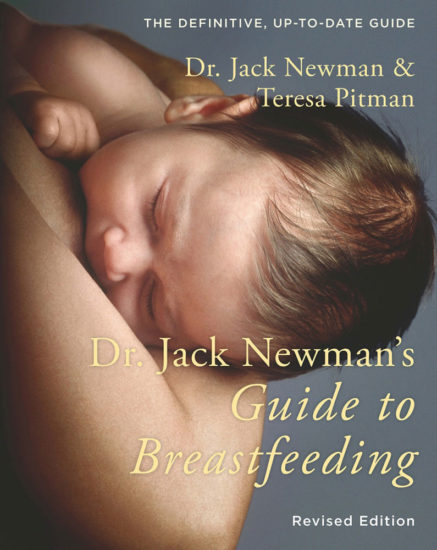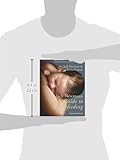I was particularly looking forward to reading this book after seeing a few tempting excerpts online. Especially as Dr Jack Newman is well loved and outspoken in breastfeeding circles and Teresa Pitman is one of the co-authors of The Womanly Art of Breastfeeding and Sweet Sleep. I wasn’t disappointed. Dr Jack Newman’s Guide to Breastfeeding has plenty of appeal for breastfeeding mothers, breastfeeding counsellors and health professionals alike. It is full of breastfeeding tips including some very useful information about several health issues and their medications with regard to breastfeeding. There is lots of plain talking—dispelling myths as ‘nonsense’, and more than a few poignant digs at the poor advice given by those who ‘should know better’. It’s a winning recipe thanks to the authors’ combined practical and personal breastfeeding experience. This, coupled with the confidence that perhaps only a very experienced paediatrician might dare to put into print, means that this book will help challenge many health professionals’ practice—let’s hope they read it!
The message underpinning every chapter is that breastfeeding is a relationship over and above a feeding method, and that breastfeeding should not be undermined at any cost or at anytime.
Breastfeeding should never be expendable. Only under extraordinary circumstances should breastfeeding be interrupted. It is too important to the physical and mental health of the child and the mother for them to give it up the way one might give up ice cream.
And:
One woman was told by her doctor that her milk had no nutritional value now her baby was 18 months, so she should stop. We still tend to forget, as does this pediatrician, that even if there were not a single calorie or nutrient in the milk this toddler was getting, even if there were not a single gram of protein or fat or carbohydrate, not a single mineral or vitamin in the milk, there is much more to breastfeeding than milk. And why would this pediatrician care if this 18-month-old still breastfeeds? Where is the harm?
Jack Newman certainly makes his feelings clear when he doesn’t approve of something. It could be tempting to question some of his ideas and maybe feel a little defensive—if it was coming from anyone else. But his rationale against using a syringe or bottles for supplements, ‘gritting his teeth’ at the mention of nipple shields, or his suggestion for giving high calorie solids earlier than the norm for a low gaining baby are all offered with the best intention and soundest logic; to preserve breastfeeding.
if the baby is already having problems latching on, a bottle or a pacifier will probably make it worse. And even babies who are doing fine at the breast can have problems if they are given bottles. Even one bottle can create problems if it is given early on. This is sometimes called “nipple confusion,” although the babies are not really confused. They just want milk.
Some of the answers in this book will be hard to find elsewhere. Particularly if you have run into complex problems with breastfeeding. And while I don’t think any book can be a substitute for a one to one consultation in person with a good International Board Certified Lactation Consultant; as self-help books go, this has to be one of the best places to start. It covers everything from reasons to breastfeed to poor weight gain, from ideas to explain why a baby is fussy or ‘has colic’ to reasons to preserve breastfeeding for both babies and pre-schoolers in custody battles. Not forgetting all the special Jack Newman techniques to get breastfeeding off to a good start that have made him into everyone’s favourite breastfeeding guru.
The main divergence from official guidelines (UNICEF, NHS, WHO, LLL) that might raise a few eyebrows, or provide food for thought, is the authors’ take on starting solids—specifically for when babies are not gaining weight well.
It’s not necessary to wait until six months before starting solids. Health Canada, the Canadian Paediatric Society, UNICEF and other groups encourage mothers to breastfeed exclusively to six months. However, if the mother is supplementing with formula, she is not exclusively breastfeeding anyway. Most babies can take solids around four months and if the mother is tired of using the lactation aid, starting solids can avoid bottles.
Dr Jack Newman’s Guide to Breastfeeding is a great addition to your book shelf, whether you are a first time mum, an experienced breastfeeding counsellor or a health professional searching for something specific.


